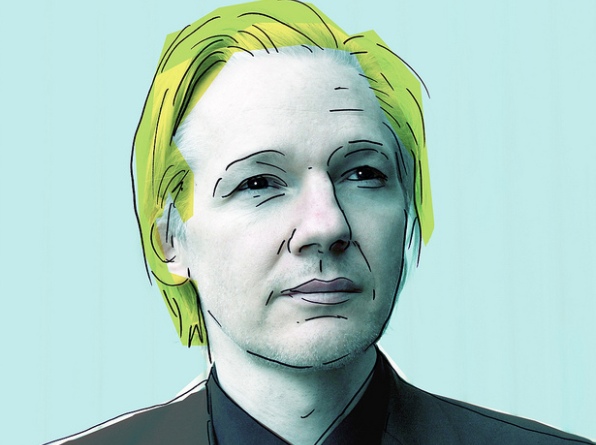Julian Assange Founder of Wikileakes
WASHINGTON—The expulsion of the US ambassador to Ecuador marks a new setback for Washington in Latin America thanks to WikiLeaks disclosures, which have already forced the exit of the US envoy in Mexico.
The hundreds of thousands of US diplomatic cables released by the whistle-blower website since November 2010 have embarrassed the Obama administration in Latin America, prompting a diplomatic campaign by Washington to limit the damage.
The assistant secretary of state for Latin America, Arturo Valenzuela, who has led the effort, said earlier this year that the region’s muted reaction to the scandal showed “the renewed strength of our relations.”
But in recent days the revelations have produced concrete damage. On Tuesday, the Ecuadoran government of Rafael Correa ordered the expulsion of US Ambassador Heather Hodges, less than three weeks after the US ambassador in Mexico, Carlos Pascual, resigned after raising the ire of President Felipe Calderon.
These setbacks have come barely two weeks after Obama completed his first tour of Latin America, a visit to Brazil, Chile and El Salvador that was supposed to reset US relations there but were dimmed by events in the Middle East and a lack of concrete results.
Quito resented a cable in which Hodges asserted that Correa had named a police chief in 2008 whom the Ecuadoran president knew to be corrupt, while Mexico City was infuriated by cables that described frictions between the Mexican army and navy, and the lack of coordination among the country’s security forces.
Correa wanted “to send a strong message that he will not tolerate what was contained in the cable. Doing so will likely have some costs for the bilateral relationship,” said Michael Shifter, head of the Inter-American Dialogue think tank.
A side effect of the massive leaks may be to undermine Obama’s strategy of maintaining a dialogue with governments “like Ecuador’s that had not been too friendly to Washington,” said Shifter.
“It will strengthen skeptics of that strategy in Washington,” he said.
Even though he is close to Venezuela’s Hugo Chavez, a vehement opponent of the United States, Correa had been pragmatic in his dealings with Washington.
Ecuadoran Foreign Minister Ricardo Patino said Wednesday that he hoped there would be no “consequences” after Washington protested Hodges’ expulsion and said it was studying its options.
Patino made a point of saying that relations with Washington have been “excellent,” and Ecuador’s action was aimed “specifically” against the ambassador and not at the Obama administration.
Beyond the realm of diplomacy, where there will surely be consequences, are trade relations between the two countries.
An influential US lawmaker, Democrat Eliot Engel, on Tuesday said Correa “has seriously undermined the possibility” that trade preferences “will be reinstated in the foreseeable future.”
“While I expect the United States will respond in kind, I can only hope that this diplomatic dispute will be short-lived,” Engel said.
The trade preferences, which went in to effect in 2002 and reduced tariffs on goods from Ecuador by 72 percent, expired in February.
The WikiLeaks revelations have touched on a wide variety of matters in Latin America, from Washington’s inquiries into the mental health of Argentine President Cristina Kirchner to the possibility that Muslim militants were raising funds in Chile, and its myriad criticisms of governments and leaders in the region.
But Shifter said, “The reactions to the WikiLeaks in different Latin American countries mainly reflect the domestic political situations in countries and the temperaments of national leaders.
